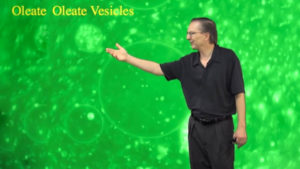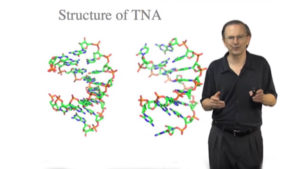Early in his research career, Dr. Szostak made important contributions to the field of genetics. These included construction of the first yeast artificial chromosome and furthering our understanding of the function of telomeres, work for which he shared the Nobel Prize in Physiology or Medicine in 2009. By the 1990s, however, Szostak had redirected his research to understanding how life on earth may have first emerged. He began his studies in this area by attempting to construct an RNA molecule that could self-replicate. His lab now focuses on developing a simple artificial cell that can grow and evolve in response to a changing environment.
Szostak received his B.S. in biology from McGill University and his PhD in biochemistry from Cornell University. Currently, he is a Professor of Genetics at Harvard Medical School and an Investigator at Massachusetts General Hospital and the Howard Hughes Medical Institute.








